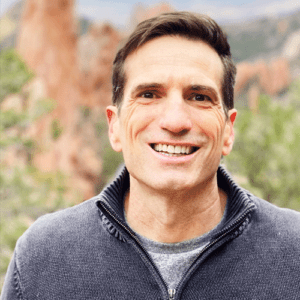Last month marked the half-year anniversary since Haiti’s catastrophic earthquake. Aside from the small uptick in coverage at the milestone, the eyes of the world have largely turned elsewhere: oil leaks, soccer matches, November elections. Of course, this was all but inevitable. The 24-hour news cycle is fueled by “new,” and tales of ongoing struggle, grinding poverty, and a less-than-hoped-for rebuilding are anything but new.
There’s certainly good reason for frustration at the reality every news programmer knows all too well: news consumers rarely remain interested in other people’s tragedy for more than a few months, at most. Such is human nature, as much a testimony to evil in our world as Haiti’s earthquake itself. The truth is, if we tried to sustain concern for every tragedy we’ve ever seen on TV, we’d melt like cheese on a stovetop. So, as the media’s conveyor belt of heartbreaking stories rolls on, we are left making uneasy peace with an emotional journey that looks like an EKG: long stretches of numbed apathy spiked by occasional moments of empathetic sorrow. Is this really the best way to live?
When I was seven or eight, I loved to whittle. For starters, it was one of the few uses I could find for my first Swiss Army pocket knife. Then there was satisfaction of purposeful reduction, refining a lumpy-ended stick into a spear tip or dagger. Curling flakes of raw wood piled up around my feet as a good-for-little knob became a point sharp enough, I imagined, to pierce a crocodile hide.
Is there any chance we’d want to take a Swiss Army knife to our blunt, lumpy-ended compassion? Might we want to shave off most of our good-for-little hand wringing about the world’s myriad problems, working to refine our thoughts and actions to a spear point?
At first, pulling back from general concern about tragedies might seem to diminish our compassion. Isn’t there some virtue in feeling a pang of sadness at the plight of a fellow human? Perhaps. Yet when a similar pang is felt over and over again—often sandwiched between commercials for toothpaste and potato chips , and most always producing no action in response—one rightly wonders, “What for?”
In such times, the God-given emotional response to human anguish—sorrow—evaporates into a mist of sentimentality. A stab of grief or tears brushed away with the back of a forefinger may give us a pleasant reassurance that we are, after all, compassionate people. Yet repeatedly feeling such emotions without responding does nothing for the world and may do even worse to us. As C.S. Lewis put it in The Screwtape Letters, “The more often [a person] feels without acting, the less he will be able ever to act . . . “
Troublingly, the glut of stories and images that we encounter daily makes this outcome almost inevitable. From radio to Internet to TV, we encounter dozens if not hundreds of tragedies each week. Ultimately, what this creates is continual stimulation of compassion without obvious opportunity for response. The result is a fractionalizing of attention, emotion and action.
We see a parallel to the long-term consequences of this reality in the splintered mental processes of today’s extreme multi-taskers. A Stanford study last year offered a surprising window into what results from ever-smaller divisions of focus. As one would anticipate, multi-taskers were found to have feeble capacity to concentrate or carry on sustained activity. Unexpectedly, however, multi-taskers also scored very poorly at multi-tasking itself. The habit of dividing attentions between multiple things seems to have made multi-taskers worse at everything. “The huge finding is, the more media people use the worse they are at using any media,” expressed one of the study’s researchers. “We were totally shocked.”
This irony, however, is not so rare after all. Who would argue that a young Casanova truly knows how to love a woman simply because he loves many women? With such a man, splintered affection is far less than the sum of its parts. To love well, as to do well, requires focus.
Quakers speak of a concept I’ve come to value deeply in recent years: what they refer to simply as a concern—the idea that from among all the many needs calling for our attention, there is often one that God invites us individually to engage. Although Scripture’s explicitness on this point may be debated, it strikes me as a very natural extension of the biblical view of individual gifting (as in Romans 12, and 1 Corinthians 12) and the “good works, which God prepared beforehand, that we should walk in them” (Ephesians 2:10).
A concern is invitation to special focus, to ongoing concentration of thought and action. Certainly, other needs arise that require attention as well, from family illness to a stranger with a dead car battery. But most of the time, the concern serves as a focal point of ministry and service, enabling a person to pour herself wholeheartedly into the work God has given her. It is an enormous “yes” to one thing, and a freeing “not now” to the rest.
Seeking after a concern may offer just the Swiss Army knife we need to begin whittling. It’s not that we cease to care about all the other ache and anguish in the world. I remember how my grandmother, every time she heard a siren, quietly prayed for the emergency workers rushing to the scene and those needing their aid. We’d do well to extend that practice to cover every tragic story encountered in the news as well. But with a concern, we can also be free to offer such prayer and then return focus to what God has uniquely given us, from mentoring foster youth across town to funding water wells in Africa.
A true concern is a gift—given, not seized. Most often, I believe, it is but a whisper of God’s still, small voice: This is the special burden, and special joy, I wish to give to you. There’s never been a time when I’ve heard audible words from God. But I can say unequivocally that He has mysteriously woven my experiences, relationships, strengths, interests, and seemingly disconnected events to bring me to a true concern at many points in life.
Solitude and prayer play a key role in preparing us to receive this gift. Amidst a world flooded with stimulants and information, one of wisdom’s most significant functions is simply to pick needles of significance from haystacks of noise. James urges, “If any of you lacks wisdom, let him ask God . . . and it will be given him.” That’s what’s required here. As a concern begins to arise, focused prayer for the issue itself also helps refine and confirm our sense of calling to engage it.
Intertwined with prayer, I’ve found times in solitude indispensable. Apparently, Jesus did as well, spending the night before he chose his disciples alone on a mountainside, as he did at many other times as well. For me, at least, it is not so much that times in solitude—whether a half hour in the morning or a day alone in the mountains—immediately “produce” a clear calling. There have been such moments. But usually, it simply seems that regularly practicing time alone with God slows the dizzying merry-go-round of daily life, enabling me to see and hear Him more clearly in all things.
Finally, although the quest for a concern calls for both seeking and waiting (equally strong biblical themes held in tension with each other), I think it’s worth noting that we need not remain paralyzed until we find what we imagine to be a lifetime calling. So many Gen X and Y-ers drift through years or more waiting for the “perfect fit” of a job or cause. The presence of endless options leads us to choose none, fearing we’ll miss the “right path” if we start down another. But concerns can change over time, often providing unexpected preparation for the future as well. A few years in city government may be the perfect training ground for discipleship ministry, and vice versa. The far greater mistake would be to waste those years engaging with little passion in tasks of little value. It is the equivalent of saying to the Master, “I was afraid and went out and hid your talent in the ground.”
Instead, we must take His talents and invest, pouring them into a God-honouring undertaking guided by the unique concern He’s given us. This begins and grows in prayer. But as God helps us whittle our cauliflower-shaped compassion into a focused point, we can engage His world in a way we never could before. We are released, perhaps for the first time, from the guilty hand-wringing over all the things we’re not doing. Most importantly, our emotions and actions are honed to a spear tip sharp enough to pierce the hide of a crocodile.


